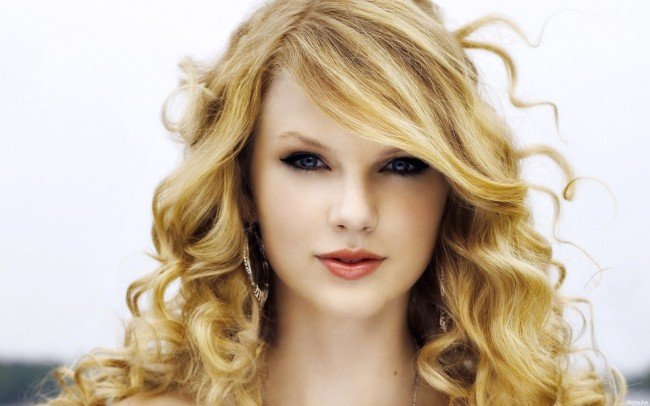Rap artist and Seattle native Ben Haggerty, better known as Macklemore (profile by Andrew Matson of the Seattle Times here), and his creative partner, producer Ryan Lewis, are performing tonight to a sold out crowd at Seattle’s 7500 seat WaMu theater. He might be wearing thrift store fur, I’m not sure. I won’t be attending, but both my daughters are big fans, and they bought tickets months ago. I eagerly await their post-concert report – maybe even a text from the show or some iPhone pics (see below). Even though I’m a white woman in my 40s, and not a huge rap fan, I’ve been following 29-year-old Macklemore for almost a year since I first saw him perform on Chase Jarvis Live in November 2011. I was riveted on several levels: from carefully choreographed performance, to intelligent lyrics, to a masterful DIY social media presence and devoted fanbase. This guy was not just another young musician wanna-be – he was intelligent, articulate, positive, and inspiring. He wasn’t a rainy-day, depressing-lyrics singer-songwriter strumming his suburban-bought Martin guitar. This was a Seattle musician on the rise, I thought. Because I’m a musician myself, I was also interested to know more about how he was cultivating success without a record label.
As an unsigned DIY artist, Macklemore embodies a peculiarly early 21st century musician success story, like Amanda Palmer’s, one that gives hope to millions of aspiring amateur artists around the world. It’s important to note that his success hasn’t been overnight, he released his first album 12 years ago. Through hard work and persistence, Macklemore has gradually created a devoted fan base that numbers in the hundreds of thousands, perhaps millions worldwide, with his socially conscious lyrics, artistic and sartorial creativity, and his considerable social media savvy. He’s even getting radio airplay – a seemingly impossible feat for an indie artist.
Macklemore’s image is built on openness, transparency, vulnerability, and social urgency. This combination dovetails technologically and socially with a slice of American society that increasingly publicly rejects bullying, materialism, and exclusivity. One might be tempted to place Macklemore in the “socially conscious hip hop” genre along with artists like Kendrick Lamar or Common. But Macklemore is white, and whether you want to admit it or not, that makes his chances for mainstream appeal higher – or at least makes his demographic appeal wider. He’s an anomaly. He has gotten some serious national visibility this week, and I predict this will increase in the coming weeks.

The past few days, in particular, have been momentous for Macklemore: a new album called “The Heist,” that hit the #1 download spot on iTunes within hours of its release (competing with more widely known, label-backed artists like Mumford and Sons), a tweeted mention by Ellen Degeneres to 14 million of her fans (above), the subject of a Bob Lefsetz Letter (see discussion below under DIY, Anti-Label Messages), a post on Ryan Seacrest’s website.
In my opinion, Macklemore stands uniquely poised to ride multiple trends to mega-success:
- Savvy Social Media Marketing: Macklemore’s 120,000 Twitter followers and 282,830 Likes on Facebook don’t match other rap superstars like Kanye West or Little Wayne, but his anti-consumerism/anti-branding single “Wings” has had 6.9 million views on YouTube, and this fall he sold out shows in London, Dublin and Paris on a tour with little other promotional expenditure than his social media presence. Macklemore also brilliantly and successfully created an unusual social media hashtag, #sharkfacegang, for his fans, no doubt helping his SEM efforts immensely. To help build momentum for “Heist,” Macklemore ran a highly successful Instagram contest in August around the “Thrift Shop” theme, which garnered 400 entries.
- Positive, Transparent, Diverse, and Socially Conscious Messaging: A recovering addict, Macklemore preaches positive values in his songs, like inclusivity, tolerance, sobriety, and skepticism of consumerism. All this bucks the mainstream in a genre that regularly demeans women and glorifies partying, promiscuity, money and consumption. His video “Same Love” has gone viral in an election season where gay marriage is a hot national political issue, and in his home state of Washington where a same-sex marriage referendum is up for popular vote. Another Macklemore song, “Thrift Store,” like “Wings” before it, brings a message of inclusivity that deliberately crosses socio-economic boundaries and calls out the brand-conscious, label-centric consumerism of American society. In addition, Macklemore is always careful to credit Ryan Lewis and the other diverse group of musicians that perform and collaborate with him.
- A Strong DIY, Anti-Label, Anti-Authority Message: Macklemore calls out the record labels for their exploitation of artists. If you read the lyrics to the track “Jimmy Iovine”, Macklemore claims to have turned down Jimmy Iovine, American music and film producer and Chairman of Interscope-Geffen-A&M. Iovine has signed, produced and worked with major artists like Eminem, Dr. Dre, and Lady Gaga. Apprently his offer of a $100,000 advance (“really a loan”) and a 7% cut to split between Macklemore and Lewis were outweighed by the “funeral” feel of the label executive’s offices and his offhand treatment of them.
- Rap Is Now Mainstream: With songs like Kanye West’s “Mercy” playing mercilessly on mainstream radio stations, rap is a genre that now covers a variety of styles, and appeals to a broader audience – male, female, black, white, Asian, from young kids to adults. On some of his songs, Macklemore is riding a softer, more radio-friendly rap sound that gained popularity with the Eminem/Rhianna 2010 collaboration “Love The Way You Lie.” This ear-friendly approach tempers the rage of many of mainstream rap lyrics by interspersing it with a softer female vocal, as Macklemore did on “Same Love” with vocalist Mary Lambert. Macklemore’s musical style and lyrics are more jazzy on some of his songs, but his lyrics remain explicit, socially conscious, challenging, and edgy. Remarkable for a rap song, most of the time you can actually understand Macklemore’s lyrics. Macklemore’s voice, like many other rappers, also has a unique sound. The timbre is soft, husky and compelling, but with an edge of urgency and the preacher-like cadence of the spoken word delivery familiar to rap listeners.
- Unique Personal Image: Like his music and his message, Macklemore himself is unusual in personal appearance. He doesn’t quite fit the rapper stereotype. A red-headed, Irish white guy, he is clean-cut and good-looking, but his promoted photo images are often nerdy and quirky, with paisley shirts, fur scarves (used), and Roy Orbison plastic black-framed glasses. He often looks uncomfortable in front of the camera, not cocky. He doesn’t wear any red leather or bottom grillz like the other rappers. He glorifies thrift shops and retro cars on his Instagram feed. His look is visually memorable and appealing, hip while still remaining vulnerable and accessible.
Macklemore is making it on his own terms, with music and messages that resonate across race, gender and generations. His current success, however, is the product of being in the right place at the right time. All the hard work he has put in over the past 12 years, releasing songs, building his following, is about to come to fruition for him.
In his own words from “The Heist”, “I put my life on the line, I’m rolling dice and I’m fine, ‘Cause all I ever dreamt about was makin’ it. They givin’, I’m taking it.”
The question is whether Macklemore will now sign with a label, or whether he can take his career to the next level, continuing to finance and market himself and his team on his own. I have no doubt the Jimmy Iovines of the industry are salivating.




4 comments